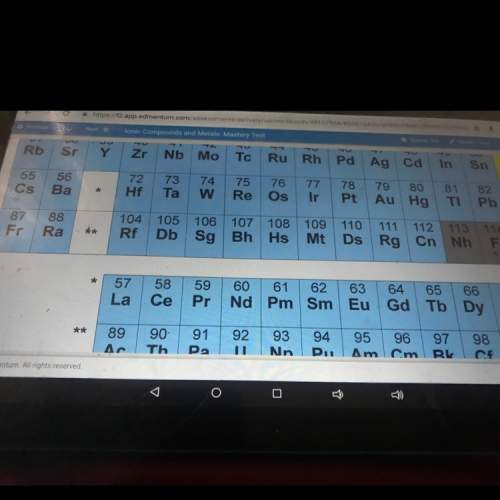
Chemistry, 08.12.2021 21:40 jacqueline398
BRAINLIEST!
Experiment: Making observations
In this laboratory exercise, you will choose one peanut from a bowlful and make "identifying observations" about the peanut. Then you will place the peanut back in the bowl and return later to try to find it again by using your observation skills.
Before you begin the investigation, you should reflect on the outcome. You have already learned how to write a good hypothesis. Try to identify which of the following would be a good hypothesis for this investigation.
I will identify the correct peanut.
If I make careful observations of a peanut, I will be able to identify the peanut at a later time.
Peanuts are so much alike that they cannot be separated by unique characteristics.
If you chose hypothesis 2, you are correct! Hypothesis 1 does not suggest any experimental design. Hypothesis 3 is not falsifiable. Although unlikely, it is possible that you could search through hundreds of identical peanuts and not be able to find one that is different in the sample. This doesn't mean there isn't a different one; it just means that you didn't find it.
Now, it's time to start the investigation!
EXPERIMENT: MAKING OBSERVATIONS
In science success often depends on making good observations. Taking note of your surroundings is part of living in the everyday world, but true scientific observation is a skill that you must develop and practice. In this project, you will test your observation skills. You will also learn how to report your findings in a scientific report.
OBJECTIVES
Recognize a valid hypothesis.
Make valid observations.
Draw conclusions concerning what constitutes "good observations."
Write a scientific report.
In this laboratory exercise, you will choose one peanut from a bowlful and make "identifying observations" about the peanut. Then you will place the peanut back in the bowl and return later to try to find it again by using your observation skills.
Before you begin the investigation, you should reflect on the outcome. You have already learned how to write a good hypothesis. Try to identify which of the following would be a good hypothesis for this investigation.
I will identify the correct peanut.
If I make careful observations of a peanut, I will be able to identify the peanut at a later time.
Peanuts are so much alike that they cannot be separated by unique characteristics.
If you chose hypothesis 2, you are correct! Hypothesis 1 does not suggest any experimental design. Hypothesis 3 is not falsifiable. Although unlikely, it is possible that you could search through hundreds of identical peanuts and not be able to find one that is different in the sample. This doesn't mean there isn't a different one; it just means that you didn't find it.
Now, it's time to start the investigation!
Making Observations
Present Your Findings
Write a summary paragraph of 200 words discussing this experiment and the results. Use the following questions and topics to help guide the content of your paragraph.
Summarize your results.
According to your data, was your hypothesis correct? (Be sure to refer to your data when answering this question.) If the hypothesis was not correct, what do the results of the lab indicate the correct answer is?
Summarize any difficulties or problems you had in performing the experiment that might have affected the results. Describe how you might change the procedure to avoid these problems.
Describe how the results might be applied in the real world.

Answers: 1
Another question on Chemistry

Chemistry, 22.06.2019 03:30
Calculate the molar mass of aluminum oxide (al2o3). express your answer to four significant figures.
Answers: 1

Chemistry, 22.06.2019 05:30
Which of the following two events occur to create a sea breeze? select all that apply. warm air rises on the ocean and moves toward the land to cool warm air rises on land and moves toward the ocean to cool cool air moves from the ocean to be warmed by the land cool air moves from the land to be warmed by the ocean
Answers: 3

Chemistry, 22.06.2019 09:20
Sugar is dissolved in water. which is the solute? sugar neither both water
Answers: 1

Chemistry, 22.06.2019 14:00
What is the ph of a solution that has a hydrogen ion concentration of 1.0 * 10 -9 m?
Answers: 3
You know the right answer?
BRAINLIEST!
Experiment: Making observations
In this laboratory exercise, you will cho...
In this laboratory exercise, you will cho...
Questions





Biology, 30.03.2020 16:19

Mathematics, 30.03.2020 16:19








Mathematics, 30.03.2020 16:20

Mathematics, 30.03.2020 16:20


Mathematics, 30.03.2020 16:20

Computers and Technology, 30.03.2020 16:20


Social Studies, 30.03.2020 16:20




